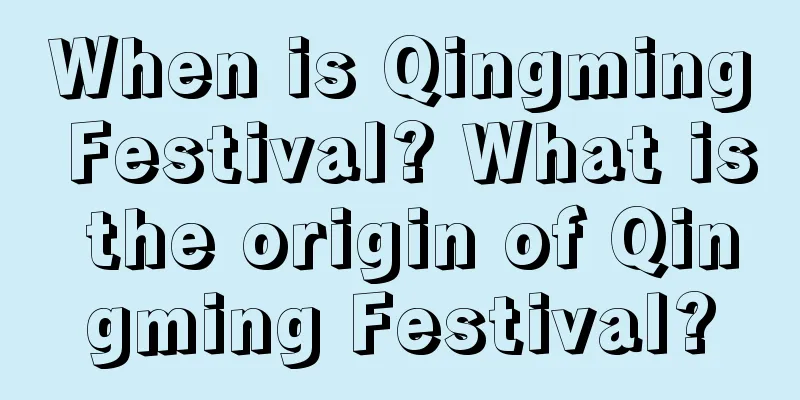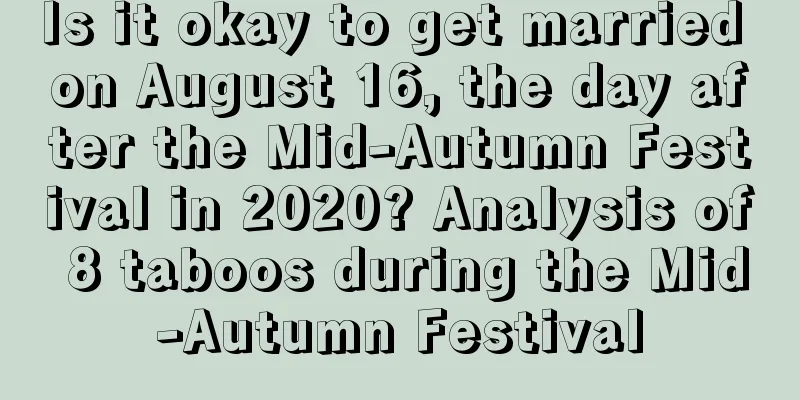When is Qingming Festival? What is the origin of Qingming Festival?

The Qingming Festival means that the temperature will gradually rise and spring ploughing will enter a busy period. We all know that Qingming Festival is a national statutory holiday. From ancient times to the present, there has been a custom of tomb sweeping and offering sacrifices on Qingming Festival. So what is the origin of Qingming Festival? Winter has gone and spring has come. February in the lunar calendar has already entered spring. The Fortune Teller website provides you with more detailed information about February in the lunar calendar of 2018!When is Qingming Festival?Qingming Festival is one of the most important traditional festivals in China and also the most important festival for commemorating ancestors. It is not only a day for commemorating ancestors and sweeping tombs. Tomb sweeping is commonly known as going to the grave, which is an activity to commemorate the dead. Most of the Han people and some ethnic minorities sweep tombs on Qingming Festival. It is also a bond for the Chinese nation to trace their roots, and it is also a day for hiking and getting close to nature. The Qingming Festival has a history of more than 2,500 years. In ancient times, the Qingming Festival was also called the Outing Festival, March Festival, Ancestor Worship Festival, Tomb Sweeping Festival, Grave Sweeping Festival, Arbor Day, Ghost Festival, etc.The origin story of Qingming FestivalAccording to legend, during the Spring and Autumn Period, Prince Chong'er of Jin fled abroad to escape persecution. On his way, he came to an uninhabited place, where he was so tired and hungry that he no longer had the strength to stand up. The attendants searched for a long time but could not find anything to eat. Just when everyone was extremely anxious, the attendant Jie Zitui went to a secluded place, cut a piece of meat from his own thigh, cooked a bowl of broth and gave it to the prince to drink. Chong'er gradually regained his spirit. When Chong'er found out that the meat was cut from Jie Zitui's own leg, he shed tears.Nineteen years later, Chong'er became the king, known as Duke Wen of Jin in history. After ascending the throne, Duke Wen generously rewarded the meritorious officials who had accompanied him in exile, but he forgot Jie Zitui. Many people felt sorry for Jie Zitui and advised him to ask the emperor for reward. However, Jie Zitui despised those who sought rewards the most. He packed his luggage and quietly went to live in seclusion in Mianshan. When Duke Wen of Jin heard about it, he was so ashamed that he took people to invite Jie Zitui himself. However, Jie Zitui had already left for Mianshan. Mianshan is high and the roads are dangerous with dense trees, so it is not easy to find two people. Someone suggested burning Mianshan from three sides to force Jie Zitui out. The fire burned all over Mianshan, but there was no sign of Jie Zitui. After the fire was extinguished, people found that Jie Zitui, who was carrying his old mother on his back, had died sitting under an old willow tree. Duke Wen of Jin cried bitterly when he saw this. To commemorate jie ziti, Duke Wen of Jin ordered that this day be designated as cold food festival. The next year, Duke Wen of Jin led his ministers to the mountain to offer sacrifices and discovered that the old willow tree had come back to life. He named the old willow tree "Qingming Willow" and announced to the world that the day after Cold Food Festival should be designated as Qingming Festival. |
<<: Can we burn incense and worship Buddha during Qingming Festival in 2018?
>>: Is it good to be born on Qingming Festival for a monkey? What is the fate like?
Recommend
Is the 24th day of the first lunar month in 2018 a suitable date for opening a business?
In daily life, opening a shop is a very common thi...
Is the 13th day of the sixth lunar month in 2017 a suitable date for opening a new store?
Introduction: With the increasing work pressure an...
What day is Laba Festival in 2020? Is there a holiday on Laba Festival?
Different parts of the country have different cust...
What are the do’s and don’ts on May 17th of the lunar calendar in 2018?
The Book of Songs records that “cicadas chirp in ...
Can I get married on October 12 of the lunar calendar in 2018? Is it a good day for engagement?
Want to know more about the auspicious and inausp...
Is it a good time to travel on the tenth day of the second lunar month in 2022? Is it an auspicious day to travel?
Different days are suitable for different things t...
2018 Lunar July 10th Lunar Calendar Auspicious Time Query, Hourly Auspicious and Unlucky Query
Want to know more about the dates in the seventh ...
Is the fate of a girl born on the sixth day of the ninth lunar month good? Good luck with noble people?
Introduction: The birth of a child brings new hope...
What is the fate of a girl born on the first day of the eleventh lunar month in 2021? Is it good or bad?
Almost everyone in the world wants to know their o...
Is New Year's Day, the first day of the new year in 2019, suitable for marriage? What should you pay attention to when getting married on New Year's Day?
Introduction: Getting married is an important matt...
What is the fate of a male tiger born on the 24th day of the seventh lunar month in 2022?
What is the fate of a male tiger baby born on July...
Is the fate of babies born in 2019 during the Big Snow solar term good? Is the Big Snow in 2019 an auspicious day?
During the heavy snow season, snow is flying every...
Will there be a holiday for Cold Clothes Festival in 2020? Is it good for people born in the Cold Clothes Festival who are of the Sheep sign to have a good fate?
The Cold Clothes Festival, also known as the Guito...
Is it a good day to go out on September 24, 2020 in the lunar calendar?
It is also necessary to check the almanac when tra...
How is the third day of the first lunar month in 2021? Is it an auspicious day?
Speaking of auspicious days, I believe everyone ha...









